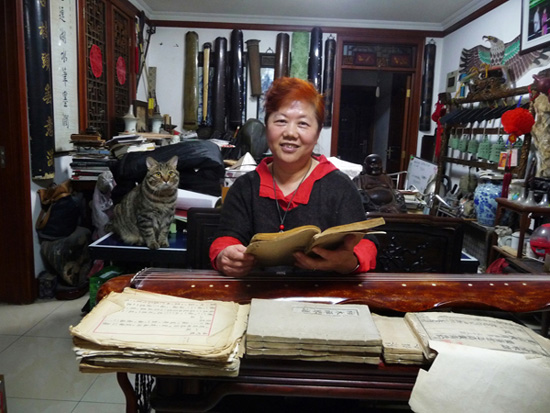
 |
| (China Daily) |
"There are notations of more than 3,000 songs passed down, but only around 100 songs have been given rhythm by older players," says guqin scholar Zhang Fusen, Gao's husband.
To recover those ancient songs, the couple traveled all over China collecting old guqin scores.
At an antique market in Tianjin, they found a book from the Ming Dynasty (1368-1644), which turned out to be the notation of the Shao, the legendary music born more than 5,000 years ago which was thought to be extinct.
Shao music was said to be so beautiful that it made Confucius (551-479 BC) "forget about the taste of meat for three months".
It has now came to life again under Gao's fingers after five years of hard work.
Since then, Gao has recovered more than 20 ancient songs that were on the edge of extinction.
"There are vivid landscapes of mountains, waters and people pictured in these songs that Gao has recovered and played, which contain a strong flavor of Zhucheng School and aesthetic value," says guqin scholar Tang Zhongliu.
In 2003, guqin music was described as one of the masterpieces of the Oral and Intangible Heritage of Humanity by UNESCO.
Gao's new monograph, which includes playable scores of more than 10 ancient songs that she has learned to play, will be published this autumn.
A teacher of more than 300 disciples, Gao is gratified that the ancient art continues to flourish in modern times. She has been training several candidates who have the potential to become the sixth-generation inheritors of the Zhucheng School.
"I hope the guqin art can live for another 4,000 years," says the guqin master.
 |
















 Migrant workes' high incomes not that rosy
Migrant workes' high incomes not that rosy


![]()
